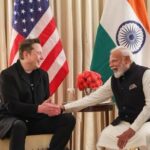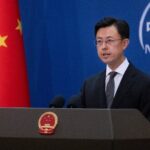Introduction: Germany’s Role in European Security
As the conflict between Russia and Ukraine continues to unfold, Europe’s security landscape is shifting dramatically. In the midst of this geopolitical crisis, Germany has raised the prospect of deploying troops to a future buffer zone near Ukraine, which could significantly alter the dynamics of NATO’s involvement in the region. This potential move would not only impact the ongoing war but could also have lasting implications for European security, the transatlantic alliance, and Germany’s military policy.
In this article, we explore the key factors behind Germany’s decision, the strategic importance of such a deployment, and the potential consequences for Europe and the world. We will also look at the broader context, including Germany’s historical stance on military involvement and the political and diplomatic implications of this move.
Germany’s Military Policy: A Historical Perspective
Germany has long been cautious about military intervention, owing to its history in the 20th century. Following the devastation of World War II and the subsequent Cold War division, Germany adopted a pacifist stance, significantly limiting its military engagements. However, in recent years, particularly with the rise of Russian aggression in Ukraine, this stance has been challenged, and Germany has begun to reconsider its role in global security.
The German military, while powerful, has traditionally operated within NATO structures, emphasizing defensive postures and diplomatic solutions to conflicts. However, the ongoing conflict in Ukraine, coupled with increasing instability in Europe, has led to a shift in Germany’s defense policy, with some factions within the government advocating for a more active role in regional security.
The Context of Germany’s Potential Troop Deployment
The war in Ukraine, which began in 2022, has evolved into one of the most significant military conflicts in Europe since the end of the Cold War. With Russia’s invasion of Ukraine, NATO and European countries have been thrust into a complex geopolitical struggle, balancing military aid to Ukraine with efforts to avoid direct confrontation with Russia.
Germany, as a leading EU member and NATO ally, has faced intense pressure to contribute more actively to the defense of Ukraine and the broader European security framework. In recent months, German officials have discussed the possibility of sending troops to a future buffer zone near Ukraine, which would act as a demilitarized zone between Ukrainian and Russian forces. This could serve as a peacekeeping mission or a stabilizing force, depending on how the situation evolves.
What Is a Buffer Zone? Understanding the Strategic Importance
A buffer zone is a designated area created to separate two opposing forces in a conflict. These zones are often demilitarized, meaning that military forces are either reduced or entirely removed in order to reduce the likelihood of direct military clashes. The goal of a buffer zone is to create a space where both sides can de-escalate tensions and potentially negotiate peace.
In the context of the Ukraine conflict, a buffer zone could be used to separate Russian and Ukrainian forces, preventing further escalation of the war and offering a potential avenue for peace talks. The location and enforcement of such a zone would be crucial, and Germany’s involvement would be seen as a significant diplomatic and military commitment.
Germany’s potential role in this scenario would not only reflect its growing willingness to engage in peacekeeping efforts but could also bolster NATO’s credibility and commitment to European security. However, it also raises significant questions about the risks of escalating the conflict and the long-term political and military ramifications.
The Political Landscape: Germany’s Internal Debate on Military Intervention
Germany’s internal debate on military intervention is multifaceted, with both political and public opinion playing key roles. On one side, proponents argue that Germany has a responsibility to protect European security and to support its NATO allies in the face of Russian aggression. They contend that a buffer zone could help stabilize the region and prevent further bloodshed.
On the other hand, critics of military intervention argue that sending German troops into a high-risk zone near Ukraine could lead to unintended consequences, including direct clashes with Russian forces. Germany’s historical commitment to pacifism, particularly following World War II, makes many cautious about increasing military involvement. Furthermore, the country’s reliance on diplomacy and dialogue complicates any decision to send troops into a conflict zone.
This divide reflects broader tensions within the German government, as well as the European Union, on how to respond to the growing crisis in Ukraine. Chancellor Olaf Scholz’s administration has faced pressure from both international partners and domestic political groups to take a stronger stance on military engagement, but at the same time, public opinion remains wary of military escalation.
Implications for NATO and European Security
Germany’s decision to send troops to a buffer zone near Ukraine would have profound implications for NATO and European security. NATO, as a military alliance primarily formed to counter Soviet expansion during the Cold War, has found itself in a new era of tension with Russia. While NATO has provided significant support to Ukraine in the form of weapons and intelligence, direct military engagement with Russian forces has been avoided to prevent a broader war.
Germany’s potential move could shift the calculus within NATO. It would signify a stronger commitment to the defense of Europe, and could serve as a catalyst for other NATO countries to increase their military support for Ukraine. However, it could also risk triggering a military response from Russia, escalating the conflict to new heights. The NATO alliance would need to navigate this delicate balance between supporting Ukraine and avoiding direct confrontation with Russia.
Germany’s Military Readiness and the Role of the Bundeswehr
The Bundeswehr, Germany’s military, is one of the largest and most capable in Europe. However, despite its size, it has faced criticism for its perceived lack of readiness in the face of modern challenges. Over the years, Germany’s military has been underfunded and has struggled with issues related to equipment maintenance, recruitment, and modernization.
A decision to deploy German troops to a buffer zone near Ukraine would require significant investments in military readiness and logistics. The Bundeswehr would need to rapidly deploy troops, equip them with necessary resources, and ensure their safety in a highly volatile region. Additionally, the political and logistical challenges of coordinating such a mission with NATO and EU forces would be immense.
Potential Risks and Challenges of Deployment
There are several risks associated with deploying German troops to a future buffer zone near Ukraine. First, there is the danger of direct confrontation with Russian forces, which could lead to a broader war between NATO and Russia. This would have catastrophic consequences not only for Europe but for the global order.
Second, the logistics of maintaining peace in a buffer zone would be complex. The political landscape in both Russia and Ukraine remains fluid, and the potential for misunderstandings or miscalculations is high. Moreover, a peacekeeping mission would require coordination between numerous international actors, each with their own interests and priorities.
Lastly, there is the issue of public opinion within Germany. Many Germans are still wary of military intervention due to the country’s historical experiences, and there could be significant domestic opposition to sending troops to such a volatile region.
Conclusion: Germany’s Growing Role in Global Security
Germany’s consideration of sending troops to a future buffer zone near Ukraine marks a pivotal moment in the country’s defense policy. It reflects a growing willingness to engage in global security issues, particularly in the face of Russian aggression. However, it also raises important questions about the risks and consequences of military intervention, both for Germany and the broader international community.
As Europe navigates the complex geopolitics of the 21st century, Germany’s decision will likely have a lasting impact on the future of European security, NATO’s unity, and the stability of the international order. Whether or not Germany ultimately sends troops, this decision will undoubtedly be a key moment in the unfolding story of the Ukraine conflict and the broader struggle for global peace and stability.





